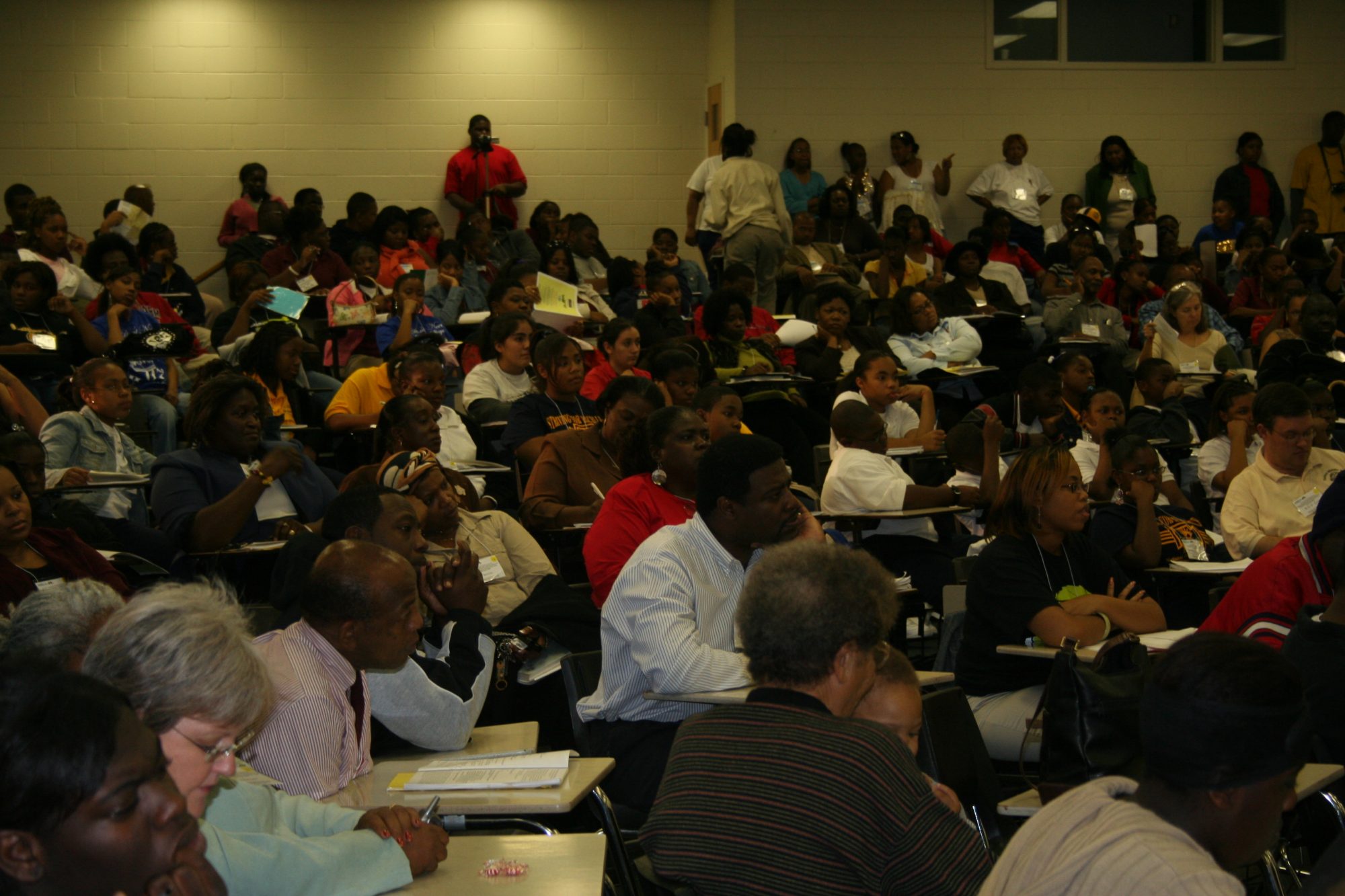Education activist join forces in regional conference against use of Charter schools to push corporate takeover of public education
Atlanta – Atlanta – “We are faced with a growing national effort not to improve public schools, but to dismantle public education by privatizing both public education and the principles and values of public education,” Southern Education Foundation Vice-President Steve Suitts told an Atlanta convening of pro-public education advocates.
Nearly 100 grassroots activists from 10 southern states came together Sept. 20-22, 2013 to plan strategies to battle against the corporate takeover and privatization of public education.
The presentations and discussions focused in part on the threat to public education from national and state policies designed to use charter schools, internet-based virtual schools and state-sponsored school vouchers to divert massive sums of public education funding into newly-formed corporate-owned, corporate-governed, publicly-funded schools.
The convening also provided grassroots community organizations from the region the opportunity to share their strategies and struggles in resisting the intense pressure to privatize public education from lobbyists for national and local entrepreneurs.
The 3-day conference, entitled Preserving Public Education – Regional Convening to Stop the Privatizing Movement in the South, was sponsored and organized by the Southern Education Foundation and the Leadership Center for the Common Good.
State delegations from Arkansas, Florida, Georgia, Louisiana, Mississippi, North Carolina, South Carolina, Tennessee, Texas, and Virginia shared their experiences, strategies, analyses and the differing stages of organizational and collaborative developments in each state.
According to convening organizers, Mississippi had the largest delegation of community organization leaders in attendance, representing Concerned Citizens for a Better Tunica County, Center for Public Education Reform, Nollie Jenkins Family Center, Mississippi Association of Educators, MS Center for Justice, Parents for Public Schools, Southern Echo, Sunflower County Parents & Students Organization, and Young People’s Project.
Some of the highlights included:
- The Georgia delegation put forth a pro-public school, anti-privatization message with the theme: “We choose all students, They choose which students!”
- Eric Zachary, Dir. of the American Federation of Teachers Human Rights and Community Relations Dept., stressed the importance of promoting a clear, simple set of educational principles to improve existing schools to complement opposition of the privatization of public education. It is not enough to be against something, Zachary noted, we have to be for something that community can understand will address the need for improvement.
- Warren Simmons, Exec. Dir., Annenburg Institute for School Reform, synthesized the corporate privatization strategy as an attempt to move us from having a “school system” to a “system of schools”, in which the decentralization and diffusion of power, buy cheap xanax bars oversight and funding will enable corporate entrepreneurs to dismantle and ultimately control the delivery of public education.
- Steve Suitts, Vice-President, Southern Education Fund, presented a paper, filled with historical and current data, graphs and charts, which identifies the four-pronged strategy designed to undermine and render public education vulnerable to open the way for corporate control of the delivery of public education:
“…. We are faced with a growing national effort not to improve public schools, but to dismantle public education by privatizing both public education and the principles and values of public education. This national effort has a “Southern Strategy” by which to accomplish its goals across the nation – by which, first and foremost, to dismantle public education in the one region of the nation where today both children of color and low income children are a majority of public school students.
To preserve the principles and promise of public education in the South, we must understand clearly the tactics and elements of this “Southern Strategy,” which has made the region’s legislatures ground zero in the struggle to preserve and improve a universal system that can provide effective, equitable education for all children in the nation.
There are four primary tactics that are being used in the “Southern Strategy” to privatize public education:
- Putting up the scaffolding for the return to a dual school system through public financing of unregulated, largely exclusionary private schools in the South;
- Starving public education by substantially decreasing state support for public schools;
- Discrediting public education as a complete failure in providing equitable, effective education, especially for the neediest children; and
- Disrupting public education through a range of so-called reforms that create divisions and distrust among parents and others without addressing real problems in education.
- Rev. William Barber, President, North Carolina NAACP, presented a stirring revelation on the collaborative impact across traditional barriers of race and class achieved by the Moral Monday Movement in North Carolina in support of public schools. Then he preached the necessity to envision transformational change as a basis for the assessment of the validity of competing strategies. Rev. Barber outlined a cogent moral center as essential to transformational change and why it necessitates connecting in our work five fundamental areas of current struggle: economic sustainability, equal education for all, health care for all, criminal justice reform, and voting rights and protections.
At the end of the conference participants talked across state boundaries about how they can begin to work together to counter the well-financed national strategies for corporatization of public education.


